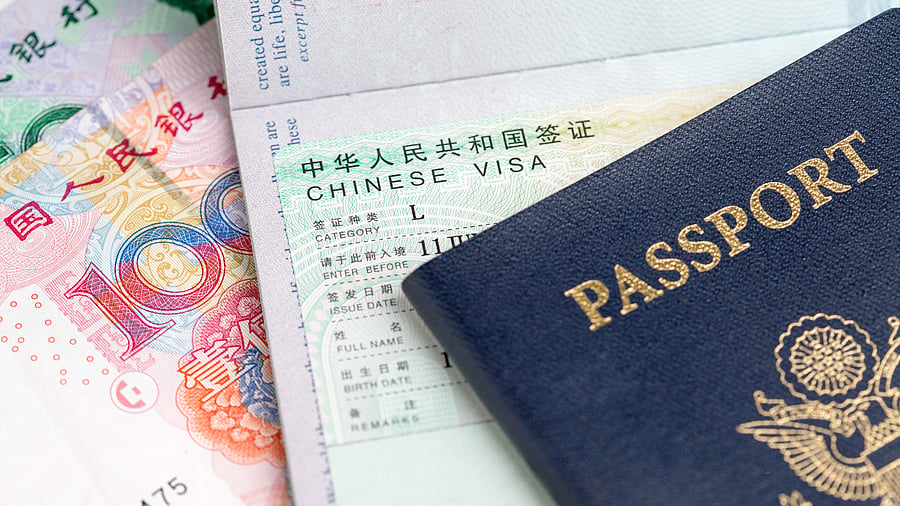
China visa. (Image for representation)
Credit: iStock Photo
Amid panic and chaos among IT professionals over hike in H-1B visa fee, China has stepped to fill in America's shoes by introducing a new K visa category for young science and technology talent.
On Friday, the Trump administration had announced a $1,00,000 annual fee on H-1B visas, a move that triggered widespread panic, concern and fear among Indian professionals on the work visa.
Hours later, the White House clarified that the new H-1B visa requirement applies only to new, prospective petitions that have not yet been filed and not to existing visa holders.
China's K visa was announced in August this year and the new rules will come into effect from October 1.
What is K visa?
As per a report by Global Times, the new visa category is in addition to the existing 12 ordinary visa types in China. K visa will provide convenience to holders in terms of number of permitted entries, validity period and duration of stay.
Once in China, K visa holders can engage in exchanges in fields such as education, culture, and science and technology, as well as relevant entrepreneurial and business activities.
Who can apply for K visa?
K visa is aimed at attracting young and talented professionals, particularly in the fields of Science, Technology, Engineering and Mathematics (STEM) from all over the world.
Qualifications and requirements for the visa application would be set by relevant Chinese authorities. Applicants must meet these criterion and submit supporting documentation to get the visa.
Key features of K visa
K visa applicants will not require a domestic employer or entity to issue an invitation. The application process will also be more streamlined.
"Bar specific age, educational background and work experience requirements, applications for K visas do not require a domestic employer or entity to issue an invitation," the report said.
The decision aims at promoting international cooperation and exchanges among young sci-tech professionals.
Officials at a press conference in August said that the move would implement China's workforce development strategy in the new era and facilitate the entry for foreign young sci-tech talent into China. With visa woes worsening after Trump's H-1B fee hike order, China's K visa move is being watched closely by global analysts.
